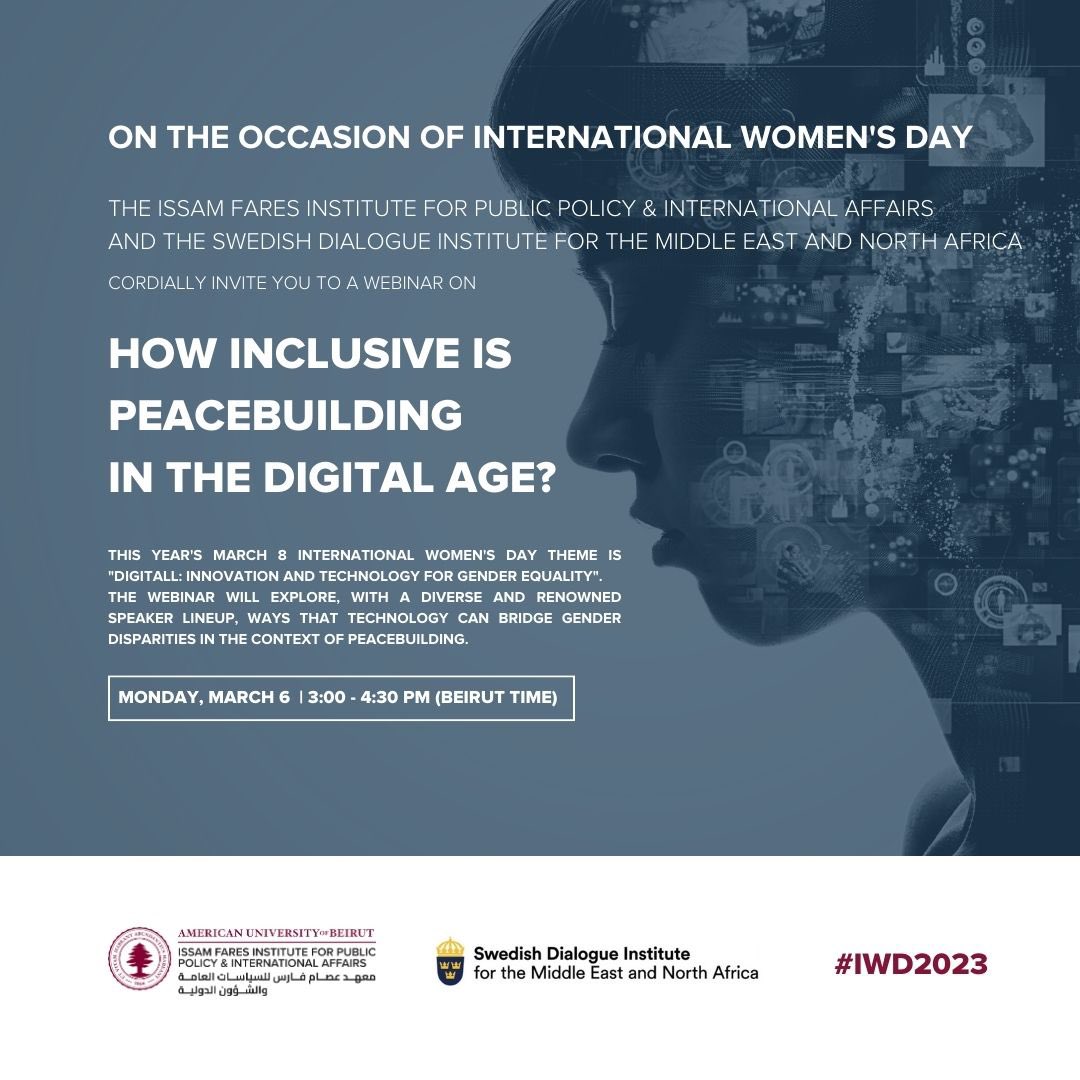|
On the occasion of International Women’s Day, IFI and the Swedish Dialogue Institute for the Middle East and North Africa hosted a webinar on “How Inclusive is Peacebuilding in the Digital Age?” The webinar took place on March 6 and explored ways technology could bridge gender disparities in the context of peacebuilding. The webinar featured Keynote Speaker Susanne Mikhail, UN Women Regional Director; Aya Bdeir, Entrepreneur and Social Activist; Nadine Weheba, Associate Director of the Access to Knowledge for Development Center at AUC; Nadim Houry, Executive Director of the Arab Reform Initiative, and Hala Bugaighis, Libyan Researcher and Human Rights Activist. The discussion was moderated by Charlotta Sparre, Ambassador and Director of the Swedish Dialogue Institute for the MENA, and Karma Ekmekji, IFI Associate Fellow and UN Women Mediation Advisor. The discussion concluded with reflections from Murielle Abi Akar, Master’s Student in Crisis and Security Management with a Specialization in Cybersecurity Governance. Susanne Mikhail highlighted that women are the first to be affected during humanitarian crises, such as being pulled out of schools and losing their jobs. In addition, from 1999 to 2019, women represented a dire percentage of negotiators worldwide (13%), and of mediators and signatories of peace processes (6%). However, peace agreements with women signatories are more likely to be reached and implemented (89%) in contrast to those with only men signatories (67%). Mikhail believed that peacebuilding is more attainable with technology, since it “improves accessibility of peacebuilding processes and provides new pathways for information, peace and political processes.
Aya Bdeir noted that technology can address the gender divide and structural problems we see in society. However, women inclusivity isn’t being reached because women in Tech rarely hold leadership or influence decisions, and are merely consumers of digital technologies. She believed that this problem can be solved by including more women in leadership positions in the Tech field. “Companies with women perform better. Stop debating the premise and start working on it,” she said. According to Nadine Weheba, technology was an enabler for women but isn’t sufficient on its own. “A multidisciplinary approach needs to be taken for women in STEM areas to enter the labor force,” she said. “Only with that approach will women be able to integrate into the labor market.” Hala Bugaighis and Nadim Houry concurred that technology could be a double-edged sword. According to Bugaighis, women started using technology to gain greater access to spaces that were historically exclusive to men, such as employment, activism and politics, but the enclosed patriarchal system in the region extended its iron fist to the digital space and gave birth to issues like cyber violence and disinformation campaigns targeting women. Nadim Houry added that the structural patriarchal power dynamics existing in the real world have prevented technology from democratizing access to communication in the Arab Region. He also believed that cyber violence targeting women is still prevalent and restrictive because of lack of accountability. However, he still has hope that accountability could be reached with the inclusion of women in Tech fields. You can watch the full recording of the webinar here. Comments are closed.
|
Archives
July 2024
|

